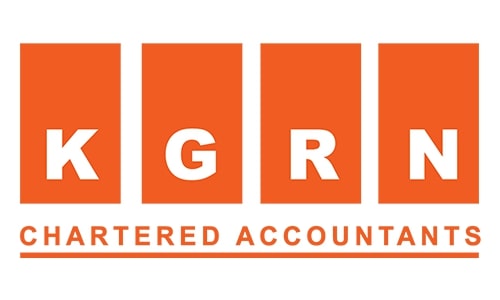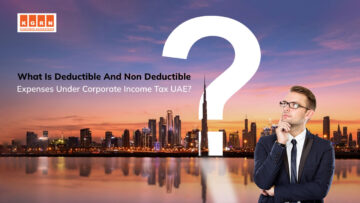The Ministry of Finance said on Monday that the United Arab Emirates would begin collecting a federal corporate tax on business income for the first time.
The statement is a watershed moment for a nation that has long drawn firms from all over the globe because of its reputation as a tax-free trade powerhouse, as the declaration indicates. From June 1, 2023, forward, businesses will be subject to the tax.
For taxable income exceeding 375,000 UAE dirhams ($102,000), the statutory tax rate will be 9 percent, and for taxable income up to that amount, the rate will be zero percent. The ministry also claims that the UAE corporate tax regime will be “among the most competitive in the world,” and that “the UAE corporate tax regime will be among the most competitive in the world.”
According to the government, individuals will continue to be tax-exempt on income generated from labour, real estate, equity investments, and other sources of personal income unconnected to a UAE trade or business. Investors from other nations who do not conduct business in the country will likewise be free from the tax.
On the basis of profit, UAE corporate tax will be levied on the “adjusted accounting net profit” generated by the company. As of now, free zone firms — of which there are hundreds around the nation — may “continue to benefit from company tax benefits” as long as they “meet all required rules,” according to the ministry. The several free zones in the United Arab Emirates have long provided advantages to businesses, including 0% taxation and the ability to retain 100 percent foreign ownership.
According to the official news agency WAM, “the UAE corporate tax system has been designed to accommodate best practises from throughout the world while minimising the compliance burden on businesses.”
“UAE corporate tax will be levied on the earnings of UAE-based businesses as reported in their financial reports produced in conformity with globally recognised accounting standards, with a few exclusions and adjustments to the taxation regime. All enterprises and commercial operations, with the exception of natural resource exploitation, will be subject to the UAE corporate tax, which will continue to be levied at the Emirate level.”
As a result of the statement, many in the UAE’s business community felt that it should not have come as a surprise when it was made on Monday.
“This revelation should come as no surprise, given UAE corporate taxation has been a hot issue of debate for many years prior to this discovery. Furthermore, the Gulf Cooperation Council already has a business tax in place, for example in Saudi Arabia and Qatar.” Peninsula Real Estate’s chief economist, Chris Payne, discusses the company’s financial performance.
Considering the UAE’s efforts to wean itself off on petroleum revenues, Payne believes it is critical that the federal government develop streams of income that are not depending on corporate profits and investment income, both of which may be unpredictable.
Enterprises in the United Arab Emirates will have roughly a year and a half to plan for taxes as a result of the decision, but opinions on whether the move would enable the Gulf sheikhdom to maintain its attraction to businesses are varied.
As Mark Hemmings, vice president of tax and treasury at Dubai-based specialist services group Kent, put it: “It was a realistic choice that made good sense.”
“It’ll be exciting to see the details,” Hemmings said of the upcoming announcement. This seems to be a practical and smart plan to ensure that corporations in the UAE can comply with projected new international tax regulations, while also guaranteeing that the UAE continues to be an attractive place for businesses to operate, according to the authors.
Despite this, the tax threshold – little more than $100,000 in earnings per year – is quite low, which may disadvantage smaller businesses with expensive start-up and renewal expenses, as well as larger corporations with fewer employees. Among the possible difficulties that Rupert Tait, co-founder of Procurified, a building digital start-up based in the United Arab Emirates, sees are government regulations and taxation.
“As the creator of a start-up, I believe it is important for us to locate ourselves in the most cost-effective environment possible in order to flourish.” On top of that, he said, “While I recognise the need for taxes to be implemented, I am also aware that we are indirectly taxed in free zones.” He went on to claim that his company, which is headquartered in the Dubai Multi Commodities Centre free zone, already pays 20,000 UAE dirhams (about $5,450) in annual taxes, regardless of profitability.
Because of the hefty initial costs and continued taxes once the firm is established, Tait believes that the UAE corporate tax will drive SMEs to rethink their long-term plans for where they want to locate.
Despite this, when compared to other low-tax countries throughout the globe, the proposed levy is a drop in the bucket.
The corporate tax rates in Montenegro and Gibraltar are 9 percent and 10 percent, respectively, while the corporate tax rates in Ireland and Lichtenstein are 12.5 percent and 12 percent, respectively. Hong Kong’s tax rates vary from 8.5 percent to 16.5 percent, whereas Singapore and San Marino both have tax rates of 17 percent, according to the World Bank. The exact products and services that will be supplied in return for the additional taxes is yet to be determined. Reach us and get a consultant from our experts.






